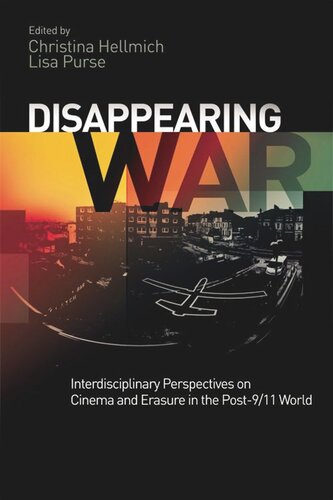

Most ebook files are in PDF format, so you can easily read them using various software such as Foxit Reader or directly on the Google Chrome browser.
Some ebook files are released by publishers in other formats such as .awz, .mobi, .epub, .fb2, etc. You may need to install specific software to read these formats on mobile/PC, such as Calibre.
Please read the tutorial at this link: https://ebookbell.com/faq
We offer FREE conversion to the popular formats you request; however, this may take some time. Therefore, right after payment, please email us, and we will try to provide the service as quickly as possible.
For some exceptional file formats or broken links (if any), please refrain from opening any disputes. Instead, email us first, and we will try to assist within a maximum of 6 hours.
EbookBell Team

4.1
50 reviewsThe battles fought in the name of the ‘war on terror’ have re-ignited questions about the changing nature of war, and the experience of war for those geographically distant from its real world consequences. What is missing from our highly mediated experience of war? What are the intentional and unintentional processes of erasure through which the distortion happens? What are their consequences?
Cinema is a key site at which questions about our highly mediated experience of war can be addressed or, more significantly, elided. Looking at a range of films that have provoked debate, from award-winning features like Zero Dark Thirty and American Sniper, to documentaries like Kill List and Dirty Wars, as well as at the work of visual artists like Harun Farocki and Omer Fast, this book examines the practices of erasure in the cinematic representation of recent military interventions. Drawing on representations of war-related death, dying and bodily damage, this provocative collection addresses ‘what’s missing’ in existing scholarly responses to modern warfare; in film studies, as well as in politics and international relations.